Space
Sign up for our newsletter
We summarize the week's scientific breakthroughs every Thursday.
-
 Science & Society
Science & SocietySometimes failure is the springboard to success
Editor in chief Eva Emerson discusses scientific discoveries that resulted from failures large and small.
By Eva Emerson -
 Physics
PhysicsA metallic odyssey, what’s causing sunspots and more reader feedback
Metallic hydrogen, sunspot formation, salty desalination leftovers and more in reader feedback.
-
 Tech
TechXPRIZE launched new kind of space race, book recounts
'How to Make a Spaceship' chronicles the XPRIZE challenge that helped ignite the private space industry.
By Meghan Rosen -
 Planetary Science
Planetary ScienceRock hounds are on the hunt for new carbon minerals
The race is on to find about 140 predicted carbon-based minerals in locations around the world. Map included.
By Sid Perkins -
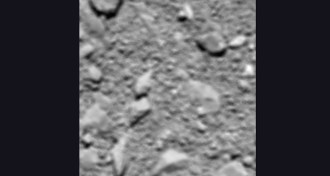 Planetary Science
Planetary ScienceRosetta spacecraft ends mission
The Rosetta mission comes to an end as spacecraft touches down on surface of comet 67P/ Churyumov–Gerasimenko.
-
 Planetary Science
Planetary ScienceRosetta spacecraft lands on comet, ends mission
The Rosetta mission comes to an end as spacecraft touches down on surface of comet 67P/ Churyumov–Gerasimenko.
-
 Cosmology
CosmologyAfter Big Bang, shock waves rocked newborn universe
Shock waves in the early universe could explain the generation of magnetic fields and the predominance of matter over antimatter.
-
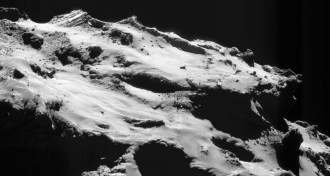 Planetary Science
Planetary ScienceSo long, Rosetta: End is near for comet orbiter
During its time in orbit around comet 67P, the Rosetta spacecraft discovered diverse terrains, organic molecules and a source of water quite different from Earth’s oceans.
-
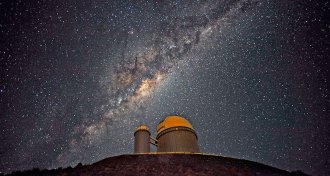 Astronomy
AstronomySolar system sits within major spiral arm of Milky Way
The solar system appears to live in one of the major spiral arms of the Milky Way, not in an offshoot as previously thought.
-
 Astronomy
AstronomySolar system sits within a major spiral arm of the Milky Way
The solar system appears to live in one of the major spiral arms of the Milky Way, not in an offshoot as previously thought.
-
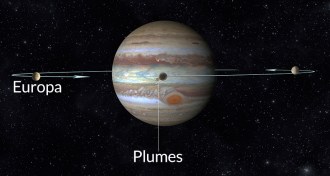 Planetary Science
Planetary ScienceEuropa spouting off again
Plumes of presumably water erupt from the surface of Jupiter’s frozen moon Europa, in images taken by the Hubble Space Telescope.
-
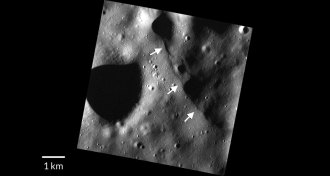 Planetary Science
Planetary ScienceMercury’s surface still changing
A population of small cliffs on Mercury suggests that the planet might have been tectonically active in the last 50 million years.